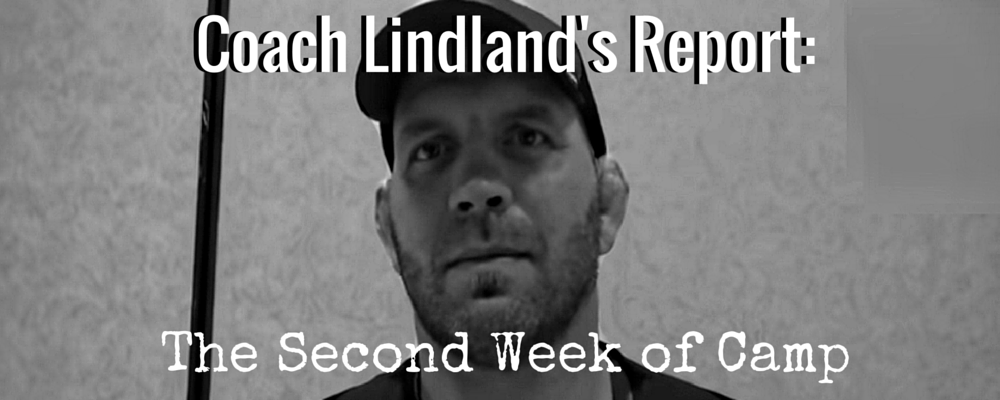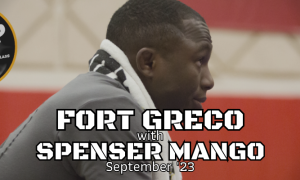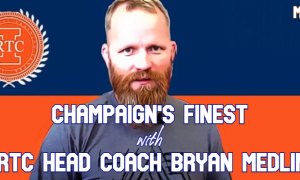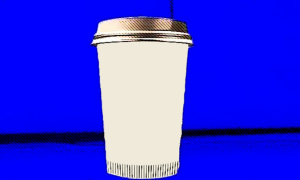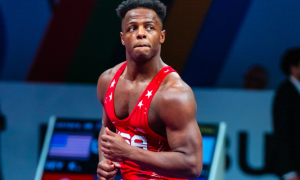Five Point Move is proud to host US Greco Roman National Team Head Coach Matt Lindland every week for “Coach Lindland’s Report.” For fans and wrestlers looking for insights regarding the US Greco National Team, we ask Coach Lindland some questions to get his take on training and upcoming competitions. If you have any questions you’d like us to ask going forward let us know via Facebook, Twitter, or through our Contact page.
This time, we talk to Coach Lindland as the second week of Olympic Camp is about to wrap up. The first week saw the introduction of “Rio Matches”, where the Olympians wrestle a new man every minute for six minutes. There had also been a concentration on using various tech-savvy mechanisms to measure the wrestlers’ conditioning levels in effort to peak them at the right time. Here, the coach discusses the importance of scheduling workouts and the need to stay disciplined through these final three weeks. In addition, we also talk a little about Fargo, a lot about younger wrestlers being pushed too hard, and of course, the Russian doping scandal. So it begins…
5PM: How’s week two going for you?
Coach Matt Lindland: Week two is great. Tomorrow is our last day because we’re going to be traveling on Saturday to Houston for processing. So tomorrow (today) is our last day. We actually have two matches in the morning. These are the Rio version with the new man every minute. Last week, we were, and when I say “we”, I guess I’m included as well, because I know I communicated this stuff, but we’ve been a little disorganized. We wanted to run it like a tournament. Show up, you’re on the mat. Mat 1, Mat 2, get up. We’re going to wrestle, do your own cool-down. It didn’t go as smoothly as I hoped. Some showed up, felt they were miscommunicated times to or whatever. You can only do so much. You can post the times on the wall, you can email it to them, you can announce it. The guys are focused on the Games, but at the same time we’ve got to be focused on being super-disciplined in whatever it takes.
Right now, it is just all about being disciplined. And so, we made sure we reiterated the times. Your match starts at 9:00, so what time should you be there to warm up? That’s now your responsibility to figure that out. It’s your responsibility to get up early enough so you can get a meal, hydrate yourself like you are preparing for Rio. So we really went over this a little more and made it clear what the goal is. This is a simulation of the day you are wrestling. We’re only going to simulate the first two matches and then we’re going to call it a day, but it’s important we focus on our discipline. We do the proper warm-up, we get the proper nutrition, re-hydrate in between the matches, refuel. So we do all of those critical steps. We’re doing the proper cool-down, we’re rolling our muscles out, we’re getting a massage. They have all of the resources available to them, they just have to be disciplined and do those things tomorrow. That’s all I’m asking for them. Then we get back on the mats the 28th after a few days off.
5PM: Did you happen to catch any of the action in Fargo over the past week?
Coach Matt Lindland: I didn’t see much because we were in the middle of Olympic Training Camp. But there’s a ton of young, talented, athletic guys in our sport. If only 3% of these guys would commit to Greco we would be one of the most successful countries in the world. With the talent pool available in this country, there are just so many incredible young athletes. I think my best place in Fargo was 7th (laughs). But I think a lot of these young athletes begin wrestling too young and they’re potentially peaking, maybe they already peaked, maybe they’re peaking now in Fargo, and there’s a lot of guys who would be phenomenal at Greco, but they don’t have the support in most areas. I think there are a few areas we’ve started to highlight on your website. Coach Lucas Steldt in Wisconsin, Coach Mark Halvorson out in California, Coach Medlin in Washington, Illinois. You’ve got Brandon Paulson in Minnesota.
But outside of these names we know, the key Greco guys, there are just not enough coaches teaching Greco. Even the guys who do teach Greco, they are also teaching other styles of wrestling because they are running a business and this is what the parents want. And it’s not necessarily as much about what the young the athlete wants. I think there is just way too much parent involvement. I get parent support, I appreciate parent support. Parents need to know their role, though. What we’re seeing now is how the communication should go between your athlete, your coach, and the parents. But there is way too much parent involvement. I hear statements like “We’re going to North Carolina” or “We’re going to Penn State.” It’s like, Who’s the “we?” Isn’t your son going to these schools?
Love, money, and transportation — that is what these athletes need. They don’t need their parents’ coaching advice, their tips on weight-cutting or what weight they should be at. They don’t need their parents to fill out their information. I mean, every kid who’s over six years old knows how to turn on a computer and type in a tournament application, until they get to the credit card part. That goes back to what I was talking about, there is the money. Love, money, and transportation. But the love has to be contingent on, I love you no matter what, no matter how you perform, no matter what result you have. Did you go out and put in a good effort? And I don’t think kids are necessarily getting those messages clearly enough these days.
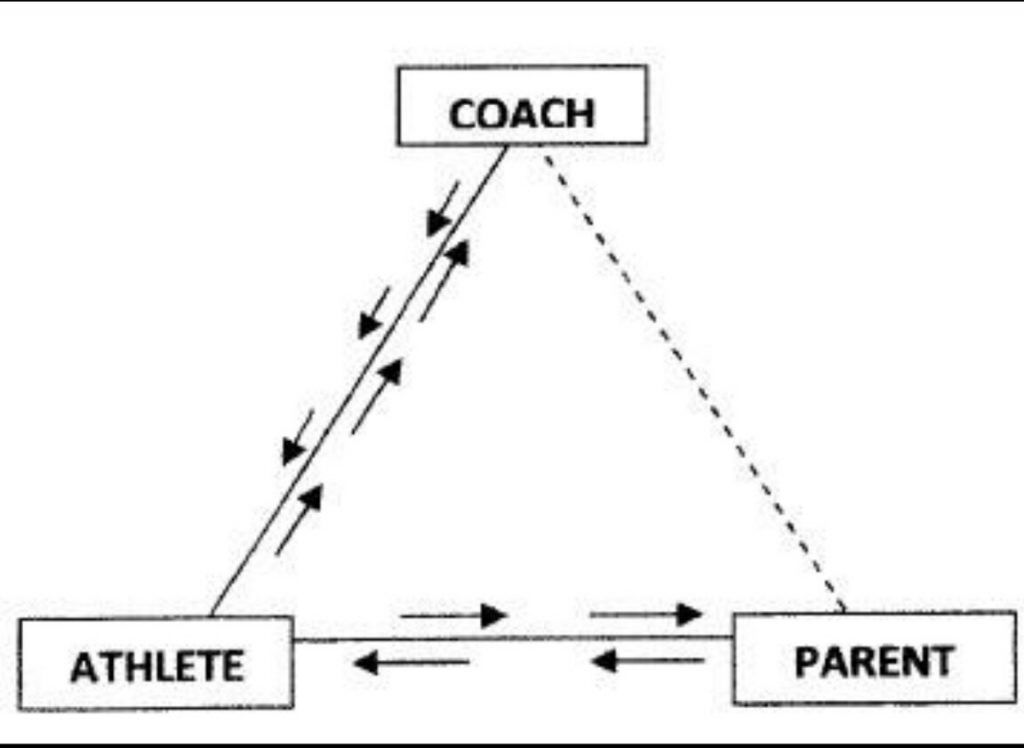
Coach-Athlete-Parent Flowchart (Courtesy: Coach Matt Lindland)
I think we need to do a better job as parents of encouraging our kids to go out and pursue their passions and what they enjoy and quit saying, “We’re going to this national tournament”, or this college. We need to just focus on what our athletes want. And I think if we expose enough of these young athletes to Greco Roman, I’m confident they would enjoy the sport, appreciate the art form of it and we could find our 3%. Right now, we don’t have that. You look at all of the focus in this country is pushing the athletes towards a folkstyle system, which is completely down the wrong path if your goals are to actually win Olympic and World medals. So, it is unfortunate that’s what we’re seeing.
5PM: Picking up on that, this is something I’ve wanted to ask you for a while which is, what do you believe the optimal age is for a kid to start wrestling?
ML: I guess in my opinion I would say the optimal age to introduce a young athlete to wrestling would be 12 to 13. And that’s just from my years of experience coaching martial arts and wrestling. I would combine them both, it’s a martial art. I would say somewhere between 12 and 13 is a great time to introduce them to the sport, but we’ve got to look at a long-term athletic development model very closely.
5PM: That’s interesting because I read the same thing in an article years back, that the best age is middle school.
ML: Well, that’s about 12 to 13, I would think.
5PM: It is. It would bear to make sense because you have enough maturity and understanding of competition by that point.
ML: But we’re going back to the earlier conversation where it’s not about what is best for the athletes, where it is sometimes what the parents want. So if we are strictly looking at what is best for our athletes, our sons, our daughters, we have to look at the research and go, This is what the research says. But everybody is the exception, aren’t they? (Laughs). Like, We’re going to do it this way because we’re smarter, we know more than all these people who studied this for years and years. I literally had a dad send me a message on the Coach Matt Lindland Facebook which said, “My son has been wrestling for three years, now he’s seven. How do I increase his speed and power?” You don’t! You tell your son to go outside and play, he’s a child (laughs). That’s the response I’m going to give you if you ask a ridiculous question. You know, I’m sure your heart is in the right place. But you must get educated. We do not want to push these athletes at this age group. It’s so counter-productive.
Let me look at the model Mike Clayton, the Coaches Education Director has, which is what USA Wrestling sends out. Early years, five to eight years old, “fun, games, and activities.” That is not what you’re seeing at kids clubs. The kids are leaving kids clubs. We have a huge hole in the bucket, every year we’re losing 40% of our members because it’s not focused on fun, games, and activities. Daily agility, balance, and coordination drills. You know, we’re running three-hour practices, they’re probably doing “grind matches” or some damn thing. It’s completely ridiculous that we have a five to eight-year old national championship. The parents have to realize that this isn’t about the athletes, it’s about someone trying to make money. This isn’t what is best for the development of the athletes. I can show you this model, but you can do your own research, as well. If we’re purely looking for what is the best development for our young athletes, we need to follow closer to this model. Even when I’m looking at this model, it says two to three practices a week maximum, 45 minutes. Even when they get up closer to 12 years old, they say 90 minutes, which I still think is too high at age 12. You can’t even keep the kid focused more than 30 minutes at that age.

USA Wrestling Athlete Development Model
But is this reality? Is this really going to happen? No. They’re going to push these kids from five to twelve years of age and then they’ve peaked. Maybe some kids started in the nine to twelve year range and now they are in the 13 to 17 year range, and they’re at Fargo and they’ve peaked. Then you have your 18 to 22 year-olds who grind out in college and we get to our world class athletes, but you know, the model here says 22-plus. Well you know, we’ve got 19-year old athletes winning World Championships in Europe. We had one this year from the US, Kyle Snyder. I’d like to see what his athletic development program was. I do know that he moved out to Colorado Springs in high school. He wasn’t worried about winning state titles. He was worried about winning World and Olympic medals. And he won one! Isn’t it interesting how that works? How when you start working on bigger goals they can be accomplished? I mean, if your mindset is so small that a state title is the biggest thing you can envision in your wrestling career, it’s sad. Or an NCAA title. But why don’t more coaches do what my coach did, which is talk about winning World medals and being Olympians for the United States? That’s all any kid in my club wanted to do.
5PM: Kamal Bey picked up on that sentiment, how other countries have athletes who are winning World titles at young ages. So it’s like, why wait?
Coach Matt Lindland: In the prime of their athletic careers. Let’s say it like it is. I just heard Jordan Burroughs in an interview, where he said (to the effect), “I’m going to be the oldest guy out there.” Maybe he’s going another quad but I mean, he said there were mostly guys who were like 20 year-olds winning the medals. We’re wasting our time. I guess you’re wasting your time unless that is your goal. But don’t tell me your goal is to win World and Olympic medals and then do something completely counterintuitive to what that would be. I mean, it’s the equivalent to saying, I want to win an Olympic medal in equestrian but I’m going to train archery. It’s utterly ridiculous.
5PM: I have to ask you about this, and that is your general take on the whole Russian doping situation and the potential ban.
ML: Yeah, I read probably the same headlines and news articles everyone else has read. It’s unfortunate, but this is the world we live in. It’s a very competitive architecture that we’ve set up. Some people are doing whatever it takes to win. We’ve seen that in sports over the last how many years now, Tim? We keep seeing that somebody is popping for drugs. For a while it was baseball, then it was cycling. Now it’s MMA and it’s Olympic sports. I mean, it’s not surprising, it’s just unfortunate because a lot of these countries don’t test like we do in the United States with USADA, you know? It almost seems like you could put together two Olympics. Here’s the “non-doping Olympics” and here’s the “do-whatever-the-hell-you-want-to Olympics.” I think what, it was like 60% of the athletes at the European Games were on meldonium? It was banned, they gave a timeline, the half-life you have to get it out of your system. In 90 days, we’re going to give you a 120-day window, so nobody is even in fear of doing that. We found some more athletes doing it and we let them back into the Olympics. Some people are punished, some aren’t.
I just don’t get worked up about it. I mean, I would love to see our athletes compete with all of the other best athletes in the world and see who the best champion shakes out. That’s what it is. It comes down to who has a great performance that day. Pretty much everyone in those brackets is capable of winning and being on that podium. But it’s going to come down to who prepared the best, who is going to have the best day. I don’t know. It’s just, it doesn’t shock me. It doesn’t surprise me, it shouldn’t surprise anybody. And it is what it is. That’s all we can say about it. There’s nothing really more to say.
Be sure to follow Coach Matt Lindland on Facebook, Twitter, and his official blog for updates as we head closer to the Rio Olympics.

Notice: Trying to get property 'term_id' of non-object in /home/fivepointwp/webapps/fivepointwp/wp-content/themes/flex-mag/functions.php on line 999

